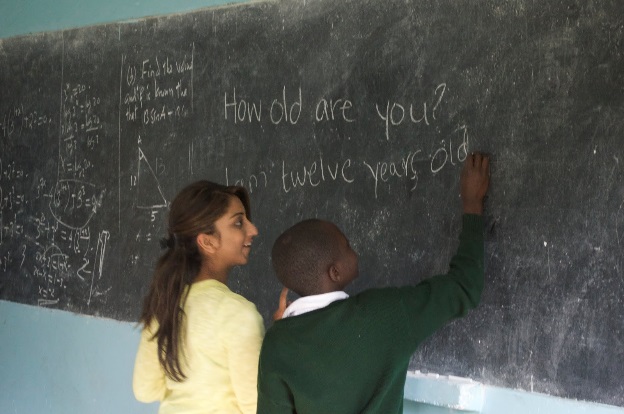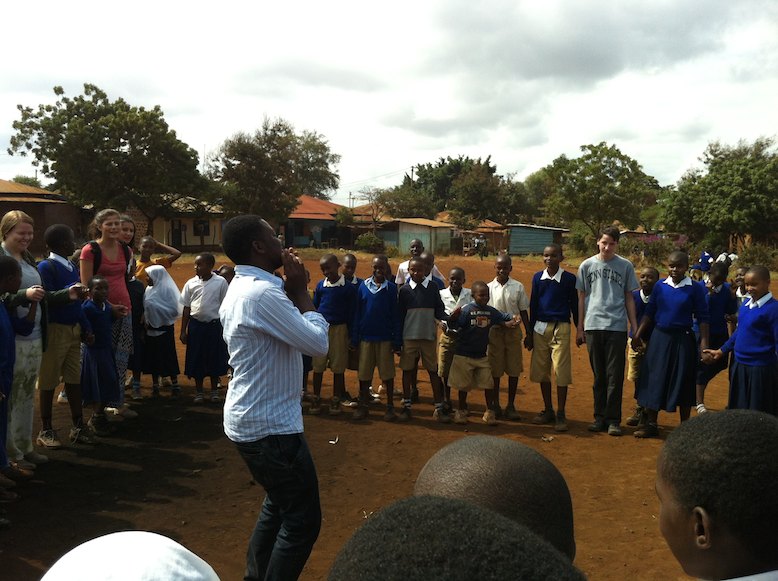“The children at the school welcomed us warmly, as usual, with big smiles and eyes eager to learn. We continued to teach sequence words, which they seemed to have a much firmer grasp on than they did yesterday.”
-Abigail W., GLA Alumnus

GLA Student Volunteer Shakira Bapoo works 1:1 with a student at Akeri Secondary School near Arusha
When Tanzanian students are in high school, they take high stakes exams that determine the opportunities that await them when they exit public schooling.
Want to go to college? You’ve got to have the highest marks on these tests.
The difficulty of this? Not only are students taking a rigorous exam, but they’re taking the exam in English-- a foreign language for the vast majority of Tanzanian students.
English is taught, both formally and informally, in most Tanzanian schools. The reality is, however, that students and teachers communicate predominantly in their native Swahili. That’s why the optional English tutoring offered by GLA students to children in Arusha and Moshi each summer is so vital! The opportunities that Tanzanian children have to practice and improve their English alongside English-speakers are scarce, and they are incredibly helpful in encouraging language development.

GLA high school volunteers in Africa at our Tanzania location - and locals - gathered around a speaker in the courtyard
Since 2009, GLA has sent nearly 700 English-speaking high schoolers from around the world to Tanzania, and their impact on the communities is an important one. We estimate that over 3,000 Tanzanian children have received summer English lessons, small group tutoring, and informal opportunities to communicate in English with GLA volunteers.
Talk about impact and fulfilling our GLA mission!
The ripple effect that these incredible relationships have on children in the communities of Moshi and Arusha is difficult to measure, but one thing is certain. Every summer, more and more Tanzanian children practice their English with GLA volunteers, and as the first group of primary school students from 2009 near graduation (and their high stake exams), we grow closer to recognizing the full effect that has been made by our work in the Tanzanian schools.

